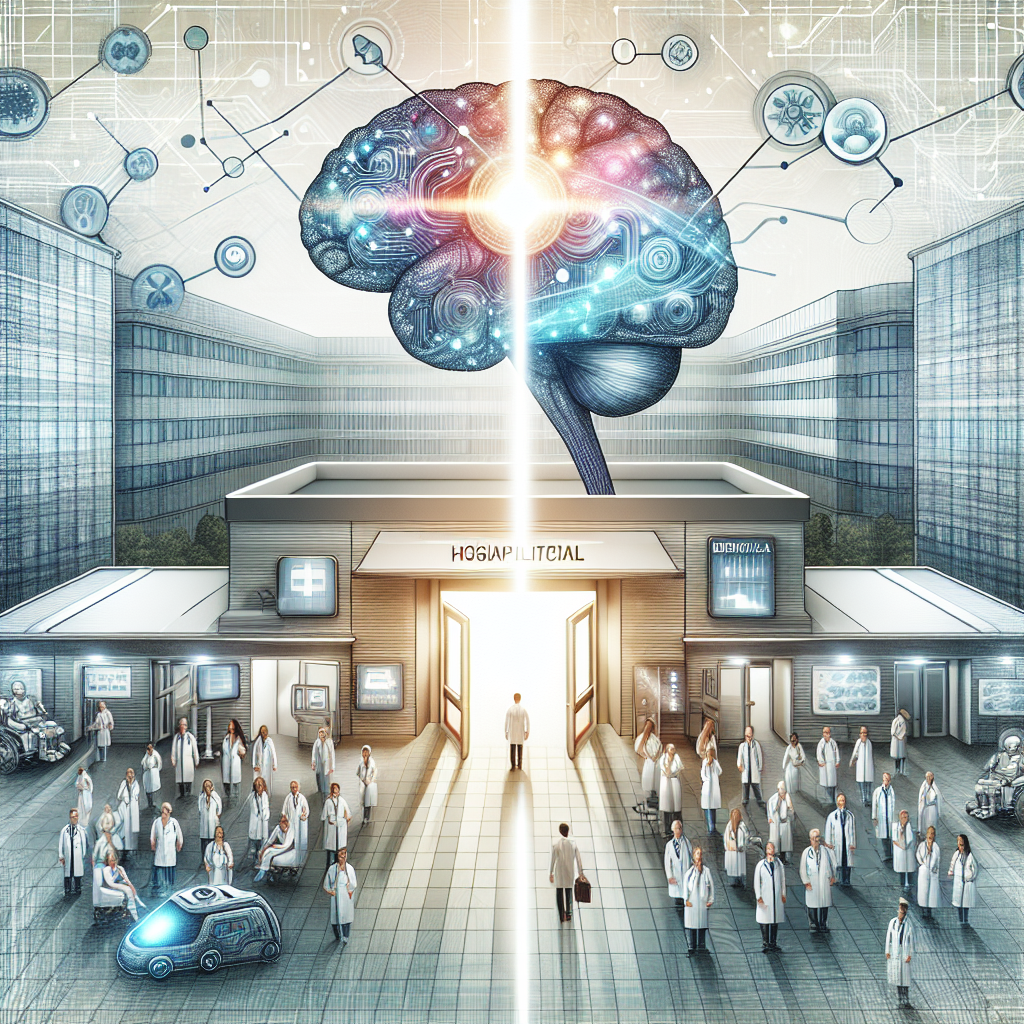Artificial General Intelligence (AGI) is a form of artificial intelligence that is capable of understanding and learning any intellectual task that a human being can. In recent years, AGI has been making significant strides in transforming the medical field. From diagnosing diseases to personalizing treatment plans, AI is revolutionizing the way healthcare is delivered. In this article, we will explore the impact of AGI in healthcare and how it is shaping the future of medicine.
AGI in Healthcare: The Current Landscape
The use of AI in healthcare is not a new concept. For years, machine learning algorithms have been used to analyze medical data and assist healthcare professionals in making informed decisions. However, with the advancement of AGI, the possibilities for AI in healthcare are expanding rapidly.
One of the key areas where AGI is making a significant impact is in medical imaging. Radiologists are using AI algorithms to analyze images from MRIs, CT scans, and X-rays to detect abnormalities and make accurate diagnoses. This not only speeds up the diagnostic process but also reduces the risk of human error.
In addition to medical imaging, AGI is also being used to predict patient outcomes and personalize treatment plans. By analyzing large datasets of medical records, AI algorithms can identify patterns and trends that can help healthcare providers make more informed decisions about patient care. This can lead to better outcomes for patients and more efficient use of healthcare resources.
Another area where AGI is transforming healthcare is in drug discovery. Developing new drugs is a time-consuming and expensive process, but AI algorithms can help researchers identify potential drug candidates more quickly and accurately. By analyzing vast amounts of data, AI can predict how different compounds will interact with the body and identify promising candidates for further testing.
AGI is also being used to improve the patient experience. Chatbots and virtual assistants powered by AI are being used to provide patients with information about their conditions, schedule appointments, and even monitor their health remotely. This not only improves access to care but also frees up healthcare professionals to focus on more complex tasks.
Overall, AGI has the potential to revolutionize every aspect of healthcare, from diagnosis and treatment to patient care and drug discovery. As the technology continues to advance, we can expect to see even more innovative applications of AI in the medical field.
FAQs
Q: How is AGI different from other forms of artificial intelligence?
A: AGI is unique in that it is capable of understanding and learning any intellectual task that a human can. This sets it apart from other forms of AI, which are designed for specific tasks and lack the general intelligence of human beings.
Q: What are some of the challenges of using AGI in healthcare?
A: One of the main challenges of using AGI in healthcare is ensuring the accuracy and reliability of the algorithms. AI systems are only as good as the data they are trained on, so it is important to ensure that the data used is accurate and representative of the population. Additionally, there are concerns about privacy and security when it comes to using AI in healthcare, as patient data must be protected from unauthorized access.
Q: How can healthcare professionals benefit from AGI?
A: Healthcare professionals can benefit from AGI by using it to analyze large datasets of medical records, identify patterns and trends, and make more informed decisions about patient care. AGI can also help healthcare professionals save time and resources by automating repetitive tasks and providing personalized treatment plans for patients.
Q: What are some ethical considerations when using AGI in healthcare?
A: There are several ethical considerations to take into account when using AGI in healthcare. These include ensuring patient privacy and confidentiality, avoiding bias in algorithms, and maintaining transparency in how AI systems are used. It is important for healthcare providers to be aware of these considerations and to take steps to address them when implementing AI technologies.
In conclusion, AGI is transforming the medical field in ways that were once thought impossible. From diagnosing diseases to personalizing treatment plans, AI is revolutionizing the way healthcare is delivered. As the technology continues to advance, we can expect to see even more innovative applications of AGI in healthcare. The future of medicine is bright, thanks to the power of artificial general intelligence.

